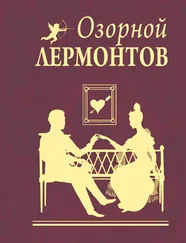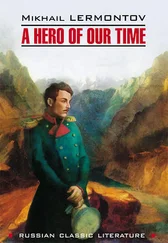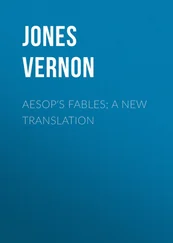“That’s it?” said the blind boy.
“Here, have more.”
The dropped coin rang out, striking against a rock. The blind boy didn’t pick it up. Yanko sat down in the boat; a wind blew from the shore. They raised a small sail and tore off swiftly. For a long time the white sail flashed in the light of the moon amidst the dark waves. The blind boy continued to sit at the shore, and then something that resembled sobbing was audible to me: the blind boy was crying, and it went on for a long time… I became sad. Why had fate thrown me into this peaceful circle of honest smugglers ? Like a stone thrown into a smooth spring, I had disturbed their tranquility, and, like a stone, I had barely avoided sinking to the bottom!
I returned to the peasant house. In the vestibule there was a burned-out candle on a wooden dish, and my Cossack, contrary to orders, was in a deep sleep, holding his rifle with both hands. I left him in peace, took the candle, and went into the peasant house. Alas! My case, my silver-worked saber, my Dagestani dagger (a present from a friend)—all had disappeared. Then I guessed just what things the damned blind boy had been lugging. Having awakened the Cossack with a sufficiently impolite shove, I scolded him, got angry, but there was nothing to be done! And wouldn’t it be amusing to complain to the authorities that I had been robbed by a blind boy and nearly drowned by an eighteen-year-old girl? Thank God, there arose an opportunity in the morning to depart, and I abandoned Taman. What became of the old woman and the poor blind boy, I don’t know. Yes, and what are the joys and calamities of man to me—to me, a traveling officer, equipped, even, with a road-pass indicating his official business!
PART TWO
( The end of Pechorin’s diaries )
May 11
Yesterday I arrived in Pyatigorsk and hired quarters at the edge of town, at the highest point, at the foot of Mount Mashuk. When a storm arrives, the clouds will come right down to my roof. Today, at five o’clock in the morning, when I opened the window, my room filled with the scent of the flowers, which grow inside the modest palisade. The blooming branches of a cherry tree look at me through my window, and the wind strews my writing desk with white petals. The view in three directions is marvelous. To the west the five-headed Beshtau is shining blue, like “the last storm-cloud of a dissipating storm.” [1] The opening line of a short poem by Alexander Pushkin titled “The Cloud” (1835).
To the north rises Mashuk, like a shaggy Persian hat, covering one whole part of the horizon. Looking eastward is more cheering: below, a clean and new little town is flashing its colors, curative springs are babbling, the many-tongued crowd is babbling; in the distance an amphitheater of blue and cloudy hills towers over the town; and farther still, a silver chain of snowy peaks extends along the horizon’s edge, beginning with Kazbek and ending with the two-headed Elbrus… What joy to live in such country! A kind of joyful feeling has spread to all my veins. The air is clean and fresh, like the kiss of a baby; the sun is bright, the sky blue—what more could one wish? What place do passions, desires, and regrets have here?… But it’s time now. I am going to Elizabeth’s Spring: it is said that the whole spa community gathers there in the morning.
________
I went down into the middle of the town and walked the boulevard, where I met several doleful groups going slowly up the hill. One could immediately guess by the worn, out-of-fashion frock coats of the husbands and by the refined apparel of the wives and daughters, that mostly these groups were the households of a landowner from the Steppe. It was obvious that the spa’s young men had already been found and counted because they looked at me with a tender curiosity. My Petersburg-cut frock coat led them to an initial illusion, but as soon as they recognized the army epaulets they turned away with indignation.
The wives of the local authorities, the “mistresses of the waters,” so to speak, were more gracious. They have lorgnettes, they pay less attention to uniform, and they are accustomed in the Caucasus to meeting ardent hearts beneath numbered buttons and educated minds under white military caps. These ladies are very charming and remain so for a long time! Every year their admirers are relieved by new ones, and this is perhaps the secret of their inexhaustible graciousness. Climbing the narrow path to the Elizabeth Spring, I overtook a crowd of men, civilian and military, which, as I later learned, comprised a particular class of people among those hoping to benefit from the action of the waters. They drink (but not the waters); they promenade little; they flirt but only in passing; they gamble; and they complain of boredom. They are dandies: they adopt academic poses as they lower their wickered glasses into the well of sulfurous water. The civilians among them wear light-blue neckcloths, and the military turn out the frills of their collars. They profess deep disdain toward provincial houses and long for the aristocratic drawing rooms of the capital where they wouldn’t be admitted.
Finally, the well… In the little square next to it there is a small house with a red roof built over baths, and beyond that is a gallery where people promenade during rainstorms. A few injured officers sat on a bench, their crutches tucked up—pale, sad. A few ladies were walking to and fro with quick steps around the square, awaiting the effects of the water. There were two or three lovely little faces among them. Under the alley of vines obscuring the slope of Mount Mashuk, I could see the occasional flashings of a colorful hat, which must have belonged to persons who loved company in their solitude, since there was always a military cap, or one of those ugly round hats next to it. In a pavilion called the Aeolian Harp, which was built above a steep rock-face, the lovers of views hung about and directed a telescope at Mount Elbrus. Among them were two tutors with their pupils, come to be cured of scrofula.
I stopped, out of breath, on the edge of the hill and, leaning on the corner of a little house, I started to examine the picturesque environs, when suddenly I heard a familiar voice behind me:
“Pechorin! Have you been here long?”
I turn around: Grushnitsky! We embraced. I had met him on active service. He had been wounded by a bullet in the leg and had come to the waters a week before me.
Grushnitsky is a cadet. After just a year in service, he wears a heavy soldier’s greatcoat—a particular kind of dandyism. He has the St. George’s Cross for soldiers. He is well-built, has black hair and a dark complexion. He looks as though he is twenty-five years old, but he is barely twenty-one. He throws his head back when he talks and he twists his mustache with his left hand all the time, while the right hand leans on his crutch. His speech is quick and fanciful: he is one of those people who have a flamboyant phrase ready for any situation, who aren’t touched by the simply beautiful, and who grandly drape themselves with extraordinary feelings, sublime passions and exceptional suffering. They delight in producing an effect. They are madly fancied by romantic provincial girls. Toward old age, they become either peaceful landowners, or drunks—and sometimes both. There are often many good attributes to their souls, but not a half- kopeck piece of poetry. Grushnitsky’s passion was to declaim: he bespattered you with words as soon as the conversation left the arena of usual understanding; I could never argue with him. He doesn’t answer objections, he doesn’t listen to you. As soon as you stop, he begins a long tirade, which seemingly has some sort of connection to what you have just said, but which in fact is only a continuation of his own speech.
Читать дальше
Конец ознакомительного отрывка
Купить книгу
![Михаил Лермонтов A Hero of Our Time [New Translation] обложка книги](/books/27671/mihail-lermontov-a-hero-of-our-time-new-translati-cover.webp)










